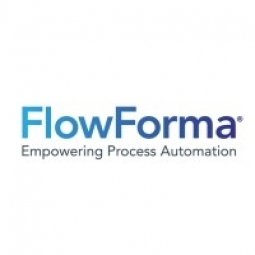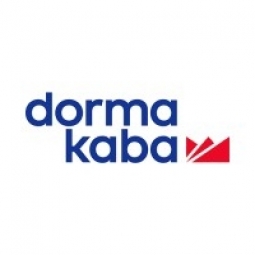Case Studies.
Add Case Study
Our Case Study database tracks 18,927 case studies in the global enterprise technology ecosystem.
Filters allow you to explore case studies quickly and efficiently.
Download Excel
Filters
-
(5,794)
- (2,602)
- (1,765)
- (764)
- View all
-
(5,073)
- (2,519)
- (1,260)
- (761)
- View all
-
(4,407)
- (1,774)
- (1,292)
- (480)
- View all
-
(4,158)
- (2,048)
- (1,256)
- (927)
- View all
-
(2,488)
- (1,262)
- (472)
- (342)
- View all
- View all 15 Technologies
- (1,732)
- (1,626)
- (1,605)
- (1,461)
- (1,423)
- View all 42 Industries
- (5,782)
- (4,114)
- (3,091)
- (2,780)
- (2,671)
- View all 13 Functional Areas
- (2,568)
- (2,482)
- (1,866)
- (1,561)
- (1,537)
- View all 127 Use Cases
- (10,333)
- (3,499)
- (3,392)
- (2,982)
- (2,593)
- View all 9 Services
- (503)
- (432)
- (382)
- (301)
- (246)
- View all 737 Suppliers
Selected Filters

|
Go to Market with a New Analytic Product in Just 8 Weeks
Qvidian, a cloud-based sales execution software provider, was looking to replace their existing, static reports, to increase customer value and boost product differentiation. Despite the fact that Qvidian already provided reporting capabilities to its clients, the company decided to upgrade to more modern and self-service analytics. The risk of not creating a new analytic product would mean static reports, keeping the focus of Pro Services away from value-add services, and instead on building tactical, custom reports. Customers would have an inability to measure the impact of Qvidian products on their business and the sales team’s inability to show and prove the value of the product for new and upsell business. There would also be a lack of visibility into product usage and trends to make informed roadmap decisions.
|
|

|
Building Trust and Reducing Time-Intensive Tasks with Camunda
Città di Lugano, a local government agency in Switzerland, aimed to increase the quality of life, provide better, sustainable services and to improve governance by providing easily accessible, always available, user-friendly and transparent digital services. They wanted to enable all customers, whether they be citizens, visitors or businesses, to trigger and actively participate in business processes. However, they needed a robust and scalable solution to achieve this. They evaluated three different solutions available on the market, but ultimately chose Camunda.
|
|

|
Healthcare company scales automation throughout its HR organization with Catalytic
The healthcare company was looking to optimize its internal business operations to meet the evolving needs of its employees, residents, and patients while providing cutting-edge research and treatment. The company’s HR organization began to explore the potential of automation and cognitive technology within its department, with three goals in mind. The top goal was to give its HR team of 600-plus the opportunity to do more meaningful work. There was a significant amount of routine work required to execute on its HR strategies, keeping the team from doing more impactful work and hindering the experience of its employees. The other goals are to reduce risk—given the company operates in a highly regulated industry—and deliver a higher level of service.
|
|

|
Bridging the Divide between Back-Office and Building Sites
Coinford, a construction company operating in the southeast of England, was facing a disconnect between work carried out on site and back-office functions. This gap between physical and digital processes was causing bottlenecks. The company wanted them to be standardized and transparent, with up-to-date information that could be seen in dashboards rather than tracked down painstakingly through emails and phone calls. Archiving and storing site related documents was difficult; retrieving them for audit purposes time-consuming, particularly when paperwork went missing. The company had identified the solution, as Suzy Pinsent, Project Manager, explained. This decision went in tandem with a move to Microsoft 365, and the adoption of SharePoint and Teams for document management.
|
|

|
Gwinnett Medical Center: Healthier decision-making steers hospital board
Gwinnett Medical Center (GMC) was relying on paper-based processes for board meetings which were time-consuming and slowed policy-making. The distribution of board materials was handled through a courier service, which delivered large amounts of paper documents to board members. This process was not only inefficient but also made it difficult for board members to digest new information in a timely manner. The board sought a solution that would help them become faster, more efficient, and more reliable when it came to policy creation.
|
|

|
Zimplats: A Journey in Safety Excellence
In 2008, Zimplats, Zimbabwe’s largest mining operation, analyzed its top risks and identified technologies that would reduce these risks in its operations. The company decided to implement an integrated system for EHSQ management. The safety system is embedded within their production systems. Recently, the mine had a fall of ground collapse, with zero injuries. The sensors that had been installed for remote monitoring of ground stability had allowed the company to evacuate everyone before the collapse occurred.
|
|

|
How Cloudera keeps its machine learning and analytics platform secure
As Cloudera grew, the time-intensive access controls it relied on to help safeguard its data secured in Cloud-based applications struggled to scale. To secure its users, apps, and very sensitive data in cloud applications, Cloudera added a cloud access security broker (CASB) solution to track and monitor all cloud activity and gained unparalleled visibility to speed remediation and mitigate risk. Protecting that data—much of it highly sensitive, personally identifiable, and subject to regulation—is Cloudera CISO Eddie Garcia’s top priority.
|
|

|
Interconnected Locks Add Convenience and Security to Credit Union
Logix Federal Credit Union in California was facing a challenge with their traditional code management system. The system required codes to be sealed in an envelope and sent to the credit union’s headquarters. If an employee needed to float between branches, he or she would need codes for multiple branches. When an employee left, the lock had to be manually reprogrammed by a locksmith to remove the employee’s code. This process was not only costly but also decreased the level of security as codes were inactive in a lock that no longer had an employee assigned to it. Logix outlined several opportunities to improve efficiency and reduce cost. These included reducing service and locksmith charges, removing lock user management from the individual branch managers, allowing more users per lock in each location, and centralizing lock management with the Logix Security Team.
|
|

|
Sandpiper Cove Eliminates Lost Keys, Gives Owners Confidence with Oracode Keyless Entry Online Access Control
Sandpiper Cove, a resort located on Florida’s Gulf Coast, needed to upgrade their locks with modern technology that provided their guests with greater convenience. They desired locks that could endure blowing sand and extreme weather conditions for years to come, while keeping pace with the demand for digitization in the evolving vacation rental market. Being one of the first resorts in Destin, Sandpiper Cove sought a smart stay solution that would appeal to a wider demographic and simplify the day-to-day management.
|
|

|
Greater Visibility into Trading Floor Communications Saves This Bank $7 Million in Projected Investigation Costs
In the highly regulated world of investment banking, new communication channels like Skype and WhatsApp, and web forums like Investopedia, are raising the risk of widespread abuse, whether through insider trading, fraud, or leaks of sensitive company information. This bank’s operations and compliance leadership knew they needed a better way to stay close to trader conversations and safeguard the trading floor. The bank’s monitoring technology was obsolete and required a high level of manual intervention to identify and investigate potential compliance issues. With essentially just an email archiving system, investigators had to build lists of words indicative of insider trading activity and conduct manual searches within the archives to build cases.
|
|

|
Greater Visibility into Trading Floor Communications Saves This Bank $7 Million in Projected Investigation Costs
The international banking group was facing challenges in meeting SEC compliance regulations due to the increasing use of personal messaging channels and web forums by traders. The bank's existing monitoring technology was outdated and required a high level of manual intervention to identify and investigate potential compliance issues. The system was not covering the full spectrum of modern communication channels and offered no systematic ways to flag potential indicators of fraudulent behavior. These time-consuming investigations, a vast majority of them false positives, were costing the bank millions of dollars.
|
|

|
Global Food Processing Organization Increases Online Connectivity Speeds by Up to 12 Times to Empower Rapid Innovation
The global leader in animal nutrition and aquafeed was facing challenges with slow internet speeds in some of its locations, which was impacting productivity and research efforts. The company was also growing through the acquisition of several smaller companies, which complicated security matters as new systems were brought into their network that may not always have strong cybersecurity in place. The company was a target for C-level spoofing and phishing attempts targeting revenue exfiltration. The company needed to reduce the potential for risky user web browsing or the opening of bogus or malware-riddled emails.
|
|

|
Forcepoint Helps FinTech Company Stay Up and Running Safely
The financial services technology organization faced the challenge of protecting sensitive customer data and end users while delivering constant access to the network to maximize employee productivity. The company needed to maintain a balance between giving employees enough control to do their jobs while keeping the network running and secure. The risk of network downtime, which would cost the company significant funds and productivity, was a significant concern.
|
|

|
Data is the New Oil, and This Enterprise Keeps its Competitive Edge by Protecting Both with Forcepoint
The company, a Fortune U.S. 50 enterprise oil and gas company, was facing a significant challenge in securing its critical proprietary data from people-based vulnerabilities. The company's task force identified that the biggest risk was employees leaving the company, who could potentially exfiltrate proprietary information. The company was aware of data leaks but lacked the ability to understand if they were accidental or malicious. The company needed a solution that could provide irrefutable evidence in case of litigation and help them get ahead of potential leaks.
|
|

|
Comdata uses Forcepoint to protect critical data without compromising workforce productivity
Comdata Group, a global leader in customer interaction and process management services, faced a significant challenge in protecting sensitive and critical data as it expanded abroad through acquisitions. The company recognized the importance of focusing on the most valuable layer of their information, related to strategic plans, economics, or synthesis of production trends. They needed to overcome their pre-existing open source solutions, which were burdensome in terms of maintenance and dedicated resources, and make room for technologies that could provide greater automation and continuous evolution. The solutions needed to respond promptly to evolving threats and, with a cloud component, also provide protection on the mobility front.
|
|

|
NetMotion Mobility® Improves Harbor Pilot Safety and Schedule Efficiency
The Dutch Pilots’ Corporation (Nederlands Loodswezen) trains and furnishes skilled harbor pilots for guiding ships through busy waters, rivers and locks. Crews pilot and dock 100,000 ships every year in Dutch and Flemish harbors, working 24 hours a day regardless of weather conditions. The law requires that the ships carry an autonomous navigation system. However, since the satellite-based system could leave crews vulnerable to natural signal distortions, jamming and spoofing, Loodswezen selected NetMotion Mobility® to ensure a stable connection to land-based servers delivering mission-critical local position corrections. Mobility enhanced crew safety and scheduling efficiency while helping the organization meet governmentmandated precision requirements.
|
|

|
NetMotion Diagnostics Enhances Oregon State Police Officer Safety
The Oregon State Police (OSP) provides critical public safety services across the state of Oregon. Officers and other field employees work from their vehicles, relying on public cellular networks to access central information systems and databases while on the road. However, weak and intermittent connectivity threatened the organization’s commitment to “be there” for the citizens of Oregon. In Eastern Oregon and other rural areas of the state, cellular coverage is often spotty or weak. For officers, a lost connection is a serious problem that puts their own safety at risk and negatively impacts call response times. Operating far beyond the reach of the IT support staff, officers would have to stop what they’re doing to try and reestablish a broken connection on their own. OSP wanted to find a way to keep officers connected. Ensuring that employees – regardless of their physical location or route – are connected to mission-critical systems was going to require a level of visibility OSP had never had before.
|
|

|
St. Luke’s Enhances Quality of Patient Care with NetMotion Mobility®
St. Luke’s Episcopal Health System was facing challenges with its existing wireless network due to its rapid growth. The increasing number of help tickets for persistent issues confirmed that the growth was overwhelming the organization’s existing wireless network. Clinicians were regularly losing connectivity while moving throughout and between facilities, which was negatively impacting patient care. The situation frustrated busy doctors and nurses who felt that they were wasting time on devices that were supposed to be increasing their productivity. The IT team also had concerns about wireless security, especially in light of HIPAA compliance requirements.
|
|

|
NetMotion Mobility® Plays Pivotal Role in Mobile-First Initiative
The UK’s largest recovery breakdown service, AA, handles over 10,000 calls for roadside assistance daily. They wanted to improve their operations model by delivering all necessary information for roadside response and customer service into a single interface, accessed via iPhones. The challenge was to ensure secure, reliable connections for the iPhones no matter the coverage conditions. This was particularly important in peak seasons and rural areas where maintaining a data connection can be difficult. The company also wanted to improve worker safety alongside busy highways.
|
|

|
IT services firm gains visibility, real-time data and threat protection with Netskope for AWS
Cloudrise, an IT services firm, was facing challenges in manually checking cloud configurations, ensuring compliance, and preventing data loss. The company was focused on keeping customer data safe while adhering to regulations. They were working to prevent unauthorized use of employee personally identifiable information (PII) and customer data. Other data loss prevention (DLP) concerns included the spread of files containing malware and access to malicious sites. Manually checking cloud configurations for Cloudrise and its customers’ infrastructure could be overwhelming. The need for a solution that automatically scans data against DLP policies was critical.
|
|

|
Leading SaaS Provider Adopts Aviatrix for Multi-Cloud Readiness and Increased Customer Satisfaction
The SaaS provider was faced with the challenge of meeting the demand for multi-cloud service delivery, which caused an exponential rise in complexity to utilize native cloud constructs in an additional cloud. This resulted in re-training of staff, and business requirements that further reduced the agility of the SaaS provider’s cloud IT teams. On-boarding just a single additional CSP resulted in inconsistent network architecture and created inefficient operations as much of the existing automation needed to be refactored for the new CSP environment. The SaaS provider wanted to create a service delivery infrastructure strategy that would provide the best possible end customer experience with the simplest and most consistent infrastructure operations, scale to their growth targets while ensuring security, financial, and reputational risks were minimized.
|
|

|
Bang Industries leverages MSPComplete to sell and onboard SMB customers to Office 365
Bang Industries, a bilingual Canadian managed services provider, was looking to grow their business and scale up their capabilities across their core services and sales process. They recognized the need to evolve to stay ahead of the competition, which meant improving the sales process and using automation across the entire business. They were also looking to upgrade their tools over the manual experiences. For instance, a project that was done using standard Microsoft tools was delayed due to slow transfer speed. They began exploring options to get around these problems.
|
|

|
Zacks Investment in Trumpia Pays Dividends
Zacks Investment Research was looking for a way to complement their email strategy for distributing their stock tips. Knowing the capability of sms to offer attention-grabbing messages wherever their customers go, Zacks looked for an SMS API capable of scaling to a massive amount of texts.
|
|

|
Vaillant is Always in hot water (Thanks to Vonage)
Vaillant Group, a leading provider of heating and hot water systems, was facing several challenges with its existing call handling system. The company, which receives over 600,000 inbound calls annually, was dealing with limited inbound trunk capacity, poor integration with Salesforce, limited call recording storage, and manual outbound calling. These issues were affecting the efficiency of their 122-seat contact center and the quality of their customer service. Vaillant needed a solution that could improve their call handling system and integrate seamlessly with their existing Salesforce CRM.
|
|

|
Acumatica implemented in just 10 days, helps Caswell Inc. run stores efficiently
Caswell Inc., a small online retail company, was facing major issues with their existing business management software, Everest. The software was expensive, difficult to upgrade, and updates often led to several days of outages. The company was running as three separate online stores, and the software was not able to support multi-company operations. The breaking point came when the software's multi-company add-on product was no longer going to be supported. Caswell decided not to renew the software license and had just a few weeks to find a new solution.
|
|

|
Software developer picks Acumatica SaaS to run global operations
smartTrade Technologies, a software company that develops solutions for investment banks, exchanges, and large hedge funds, was facing rapid growth across multiple markets and multiple currencies. The company needed an advanced financial management infrastructure that could quickly consolidate and make accessible the various accounting formats and requirements from each of its subsidiaries. They also needed a system that could easily visualize the cash flow of the group by up to a month. Prior to its decision to implement an ERP solution, smartTrade Technologies outsourced the accounting in each of its subsidiaries to local accountants. Once the monthly accounts in each subsidiary were completed, they were consolidated in Paris. This process imposed a certain delay to produce the monthly reporting.
|
|

|
Customer Success - AAA Western & Central New York
AAA WCNY's transactional systems and manual processes did not capture member information or feedback effectively, which led to data inconsistencies and inadequate visibility into member needs. The organization was struggling to provide consistent and efficient member service due to these limitations. The lack of a comprehensive system to manage member relationships was hindering their ability to effectively serve their members and convert interactions into transactions.
|
|

|
Customer Success - Ahlsell
Ahlsell, a leading wholesaler in the Nordic region, was seeking to implement a new CRM system. The company's primary focus is on electrical, plumbing, and HVAC supplies, tools, and equipment. The challenge was to find a system that would help its sales agents and sales managers achieve better alignment with senior management objectives. The company needed a solution that was flexible, easy to integrate with other supporting systems, and user-friendly.
|
|

|
Customer Success - Bay Valley Foods
Bay Valley Foods, a leading provider of shelf-stable foods, was facing spiraling material costs and increasing competition in its private-label food business. The company needed to gain enough efficiency to increase capacity, streamline costs, and avoid unnecessary capital expenditures. The challenge was to find a solution that could help them achieve these goals without incurring additional costs.
|
|

|
Customer Success - Bergendahls Food
Bergendahls Food, one of the larger retail trading companies in Sweden, was facing a challenge in their supply chain operation. The company, which operates in the Food, Fashion, and Home Deco sectors, needed a new real-time based supply chain operation to increase efficiency and delivery precision. The existing system was not able to keep up with the rapid growth of the company, which has 4,000 employees in six countries and generates a revenue of 1 billion Euro. The challenge was to find a solution that could modernize and automate their central warehouse, improving their overall supply chain operation.
|
|

